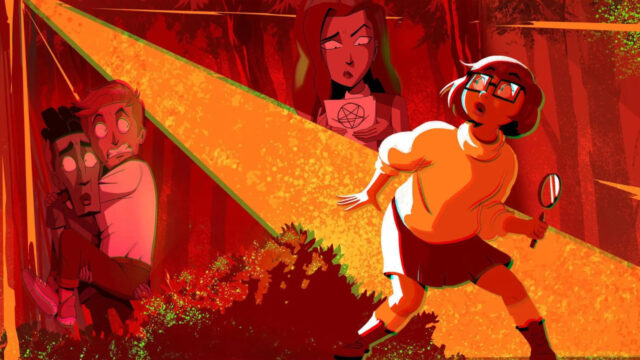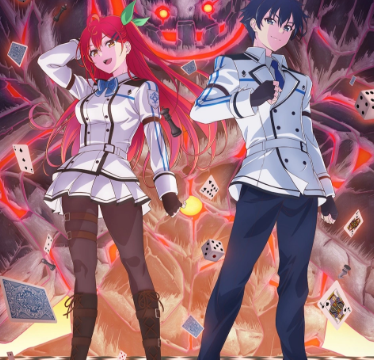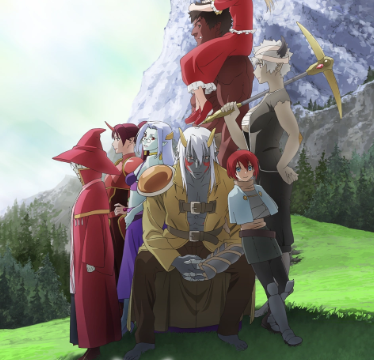English Dub Season Review: Sarazanmai Season One
Get your heads out of your butts and watch this.
Sarazanami is the latest subversive story from the mind of Kunihiko Ikuhara, best known for his directorial work on anime hallmarks Sailor Moon and Revolutionary Girl Utena, as well as creating later cult hits like Mawaru Penguindrum. Ikuhara’s body of work, at least the ones I am familiar with, often focus on reflective takes on aspects of society as driving forces for their respective casts, and Sarazanmai is no exception to that, focusing on the struggles of three boys, Kazuki, Enta, and Toi, as they are forced to turn into Japanese imps known as Kappa in order to purify zombies as penance for disturbing the holy site of a Kappa prince, as well as the way their respective motivations end up forcing them down treacherous paths, often for the sake of their own selfish desires.
The difference between selfish desire and selfless love is one of the core themes of the series, along with the connections people make and the feelings that either strengthen those connections or drive them apart. Connections are represented by circles, and so the story is inundated with circular imagery like bracelets, dishes, and balls to signify the bonds made between characters. Among the core cast, each main character has people in their lives that force them to consider the meaning of desire or love, whether their goals are truly for another’s benefit or simply their own. Without giving much away, what may start out for a character as something meant to protect their loved one’s feelings also tends to turn out being simply a way for that character to keep themselves from admitting something. And while the “monster of the week” formula that the series starts with has the characters facing embodiments of pure desire, this doesn’t stop them from being faced with these moral quandaries themselves.
I can wholeheartedly recommend Sarazanmai on its stellar animation and strong character writing alone, but getting the best examples of that does require watching a few episodes, which are a bit…strange, to say the least. Describing the premise and themes is easy enough, but seeing how they’re played out is another matter entirely. I’m not exaggerating when I say that the first episode starts with a pretty jarring and frantic pacing and then jumps into probably the most bizarre transformation sequences since FLCL. If you’re willing to look past that and embrace the madness for what lies beneath, I would say it’s worth it, but it was definitely a shock for me when I first experienced it, so I can’t really blame anyone for seeing it as a deal breaker.
The other notable flaw I think is worth bringing up (besides the very noticeable re-using of animation) is probably the pacing due to the short length of the series. The show is only eleven episodes long, mostly due to its placement in the “Noitamina” block, which usually has shows at eleven episodes. The problem with this is in Sarazanmai’s case is that the first half is a pretty formulaic “monster of the week” format, while the latter upends that to make its way towards to the grand finale. As a result, there are some character arcs that end up feeling rushed or being cut short, while the final episode itself gets very entrenched in the conceptual side of its themes at the cost of some connective tissue to make its ending a graceful landing. Personally, I think doubling the episode count would have allowed more time to explore these characters and concepts more thoroughly so the end result could feel more complete.
But regardless of these downsides, Sarazanmai was a really pleasant surprise during what seemed like a pretty dry Spring anime season. A bit of a sloppy ending does nothing to detract from a weird but rewarding journey, which I would recommend to anyone willing to take it. If you’re not into the weirdest sides of anime in recent memory, then I’d say hold onto your butts, because you’re in for a wild ride.


























Hi Ashley, thank you so much for reading and we love the feedback. Note that on that day we had 14th posts go up and only ten posts show on the front page, so it's possible the preview had already been archived by the time you got to it. One recommendation would be to add our RSS feed to your favorite news aggregator service like Feedly, this way you get all of the latest posts!